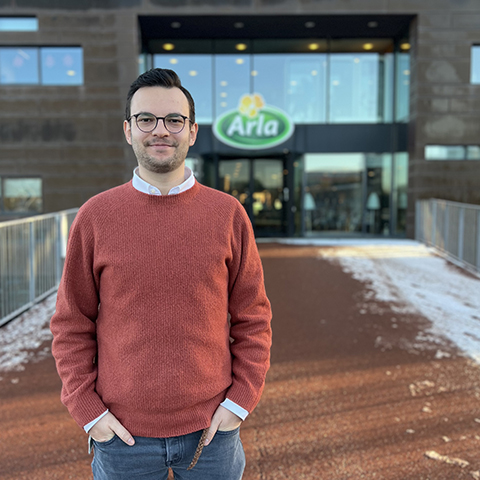European and Chinese Development
Introduction
At the core of the programme are questions of how the public and private sectors interact to produce or retard social development and innovation. The programme explores the processes that condition this interaction and how this interaction is best managed to optimise welfare, governance and market outcomes.
China and Europe both face challenges in the task of securing quality of life for citizens, social mobility and cohesion, and economic competitiveness, although in differing ways.
Learn about the Chinese and the European contexts and explore the various challenges that face the project of development in both contexts. You acquire a broad knowledge about how different welfare, governance and market models work. You investigate the strengths and weaknesses of these models and consider ways forward regarding welfare policies and institutional development.
The focus on Europe and China plays into the increasing significance of the relationship between them and invites students to become part of forging the future of that relationship.
Living and studying in Beijing you benefit from conditions that help you get the most out of the experience. Learning occurs inside and outside the classroom. Your fellow students are European and Chinese. The programme can be complemented with an internship in a relevant organisation.
On completion of the programme you receive a double degree: Master of Science in Social Sciences Public Management and Social Development from Copenhagen Business School, and Master of Management with major in Public Management, Administration Management from University of Chinese Academy of Sciences.

Place of study
The programme is carried out at SDC, at Yanqihu campus north of Beijing, and you must (as the general rule) be in China for the entire duration of your studies.
Students at the Public Management and Social Development programme may complete an internship outside China.
Programme Structure

The first semester introduces different social and economic systems, explores relationships between government and business, investigates organisation and management, and teaches you how to design, plan and implement research.
Semester one is comprised of the following courses:
• Comparing Societies and Economic Systems (7,5 ECTS)
• Research Methods (7,5 ECTS)
• Science and Innovation Policy (7,5 ECTS)
• Organisation and Management (7,5 ECTS)

The second semester introduces social policy and policy analysis tools. It explores the relationships between business and global governance and innovation that creates societal benefits.
Semester two is comprised of the following courses:
• Comparative Policy Processes (7,5 ECTS)
• Business and Global Governance (7,5 ECTS)
• Social Innovation and Entrepreneurship (7,5 ECTS)
• Comparing Social Policies: Welfare States in Theory and Practice (7,5 ECTS)

In the third semester you have three options to choose from:
1)
An internship in a public organisation, an NGO or a private company.
This is a great opportunity for you to put the theories and methods into practice. The internship must have an educational aim as well as contribute to the development or the operations of the host organisation.
What kind of organisation you choose depends on your personal interests. Former students have done internships in China and across Asia at e.g. embassies, Confederation of Danish Industry (DI), Siemens and United Nations Industrial agencies. (30 ECTS)
2)
A research-based project where you formulate, analyse and provide solutions to a management, organisational or policy problem through theoretical reflections and empirical research.
The project should preferably be done in cooperation with a company, a government agency, an NGO or an international organization. (30 ECTS)
3)
Studies at another university in Denmark, China or elsewhere letting you immerse yourself in a topic that complements the programme. (30 ECTS)

The fourth semester completes the programme by doing your Master’s thesis (30 ECTS). This is a great opportunity to focus exclusively on a topic of your interest.
The thesis can be done in collaboration with an organisation, focusing on a topic relevant to that organisation.
Courses may be subject to change.
Videos
Nakki interns at the Danish Cultural Center
On the third semester of the programme, Naghmeh Salami is doing her internship at the Danish Cultural Center, which is located in the 798 Art District in Beijing.News
Eddie Ashbee appointed new Head of Public Management and Social Development
Eddie Ashbee, Professor with special responsibilities at Copenhagen Business School (CBS) has been appointed as the new Danish Head of the Educational Programme for Public Management and Social Development. He succeeds his colleague, Duncan Wigan.Read more

Leon joins coveted Arla F15® Graduate Programme
Read more

My first international publication
Sun Chiyao’s desire for a career in academia made her determined to have her first article published in an English language journal before graduating.Read more


Career
As a graduate you have a fundamental knowledge of the institutions of the welfare state and you have gained awareness of different systems of society, cultures and governing structures.
You will be able to combine a broad knowledge of the interaction between the public and the private sector in different systems of society with a strong competence in methodology and thereby take part in creating new solutions.
Typical job opportunities will be project management, strategic, operational and policy development in public organisations, NGOs and private companies concerned with welfare reforms, social development and national business system issues.
The global perspective of the programme opens up a wide range of possibilities, and the immersion in Chinese society enables you to assist companies operating on the Chinese markets.


Contact current student
If you have further questions, please take a look at the FAQ on the Studying in China page. If you still have questions, you have the following options.
For questions regarding specific courses, admission or
practical matters please contact SDC at:
For first-hand questions regarding living and studying in China, you may contact current Public Management and Social Development student Trine Bruun Jørgensen at trine@bruunjorgensen.dk.
She does not represent SDC, but will answer your questions on the basis of her own personal experiences.

Heads of the Programme
Danish Head of Public Management and Social Development
Professor with special responsibilities Eddie Ashbee
Department of International Economics, Government and Business
Copenhagen Business School
Chinese Head of Public Management and Social Development
Associate Professor Tara Qian Sun
School of Public Policy and Management
University of Chinese Academy of Sciences
Testimonials
Adam Kadduri
BA-degree:
Economics and Business Administration, International Business
University of Southern Denmark
Occupation:
Policy Assistant, European Commission
Lasse Hangaard
BA-degree:
Public Administration, Aalborg University
Occupation:
Organizational Consultant, The Danish Ministry of Taxation



